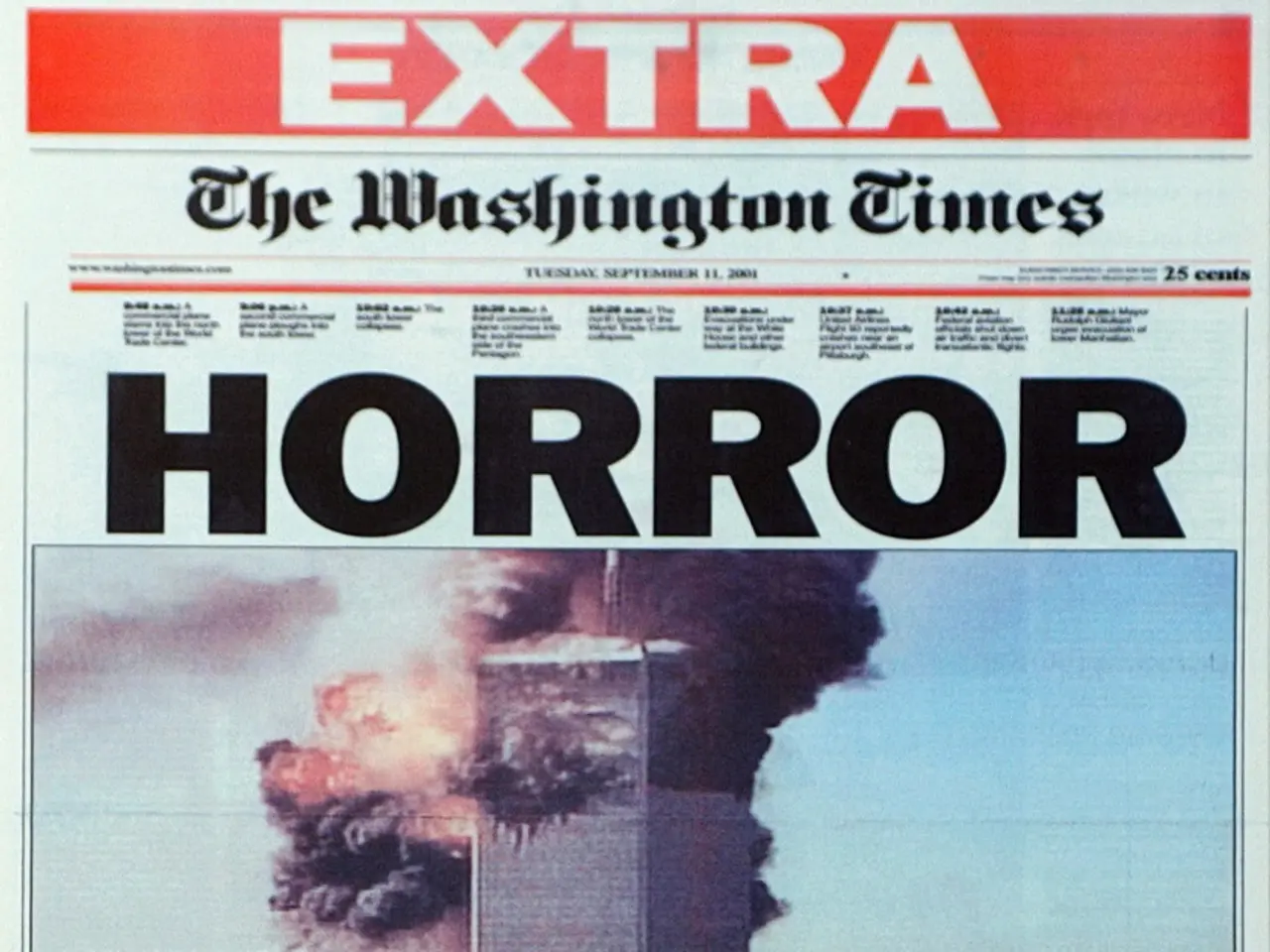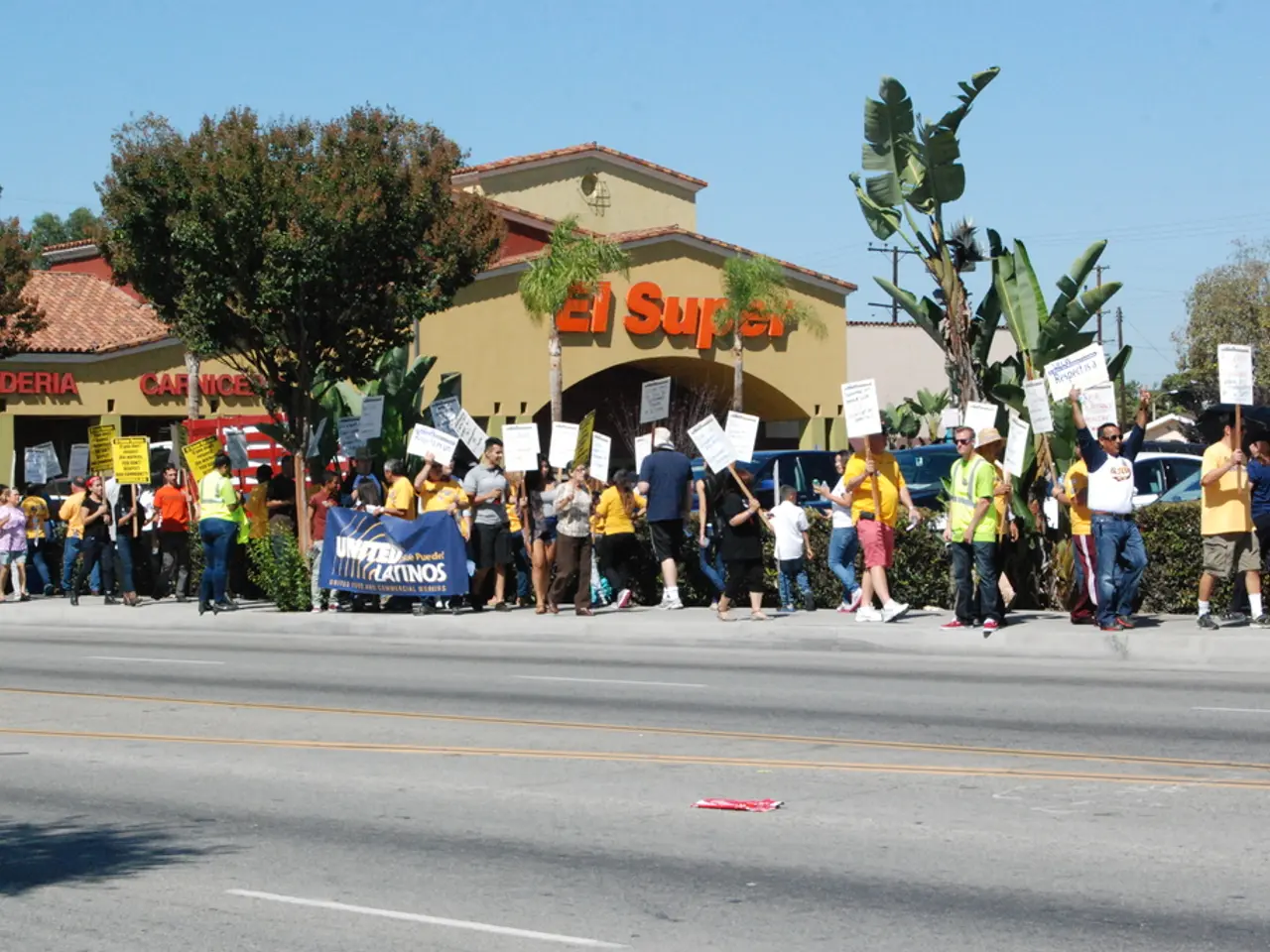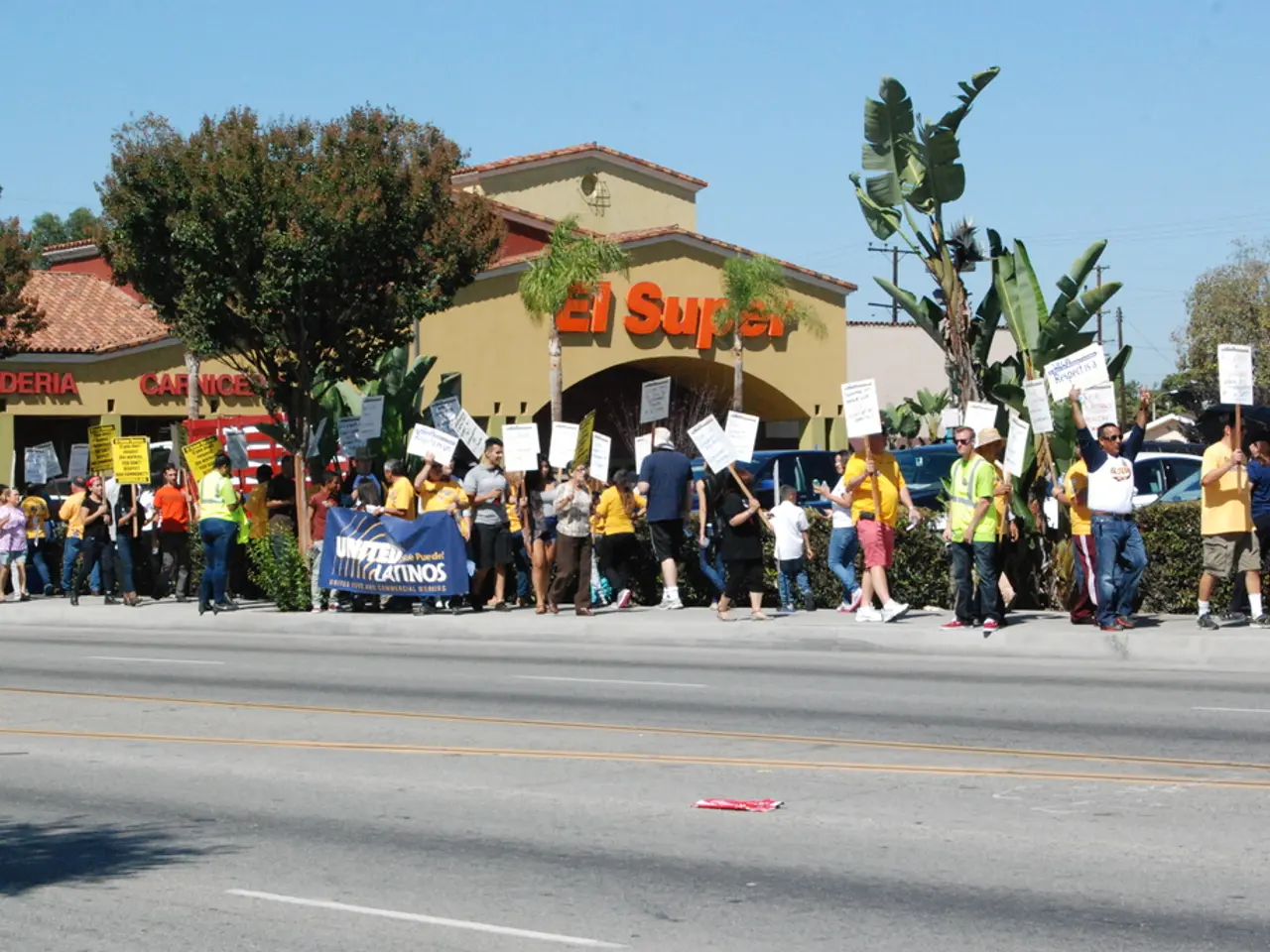Soaring costs permeate American landscape during Trump's initial half-year, bucking his pledge to decrease expenses
In the lead-up to the 2024 midterm elections, the "One Big Beautiful Bill Act" (OBBBA), signed into law by President Trump in July 2025, has significantly impacted costs, inflation, and Medicaid beneficiaries.
Impact on Costs and Inflation:
The bill's permanent extension of Trump's 2017 tax cuts and substantial increase in the federal tax deduction limits for state and local taxes (SALT) is estimated to reduce federal tax revenues by an estimated $4.46 trillion over 10 years. This move is likely to fuel the national debt, which could exert upward pressure on inflation and government borrowing costs in the medium to long term.
Moreover, the OBBBA adds roughly $3 trillion to the national debt, posing fiscal challenges that could influence inflation dynamics depending on monetary and fiscal policy responses.
Impact on Medicaid Beneficiaries:
The OBBBA includes nearly $1 trillion in cuts to Medicaid over 10 years. These cuts primarily aim to offset the cost of the extended tax cuts.
New work reporting requirements will go into effect on January 1, 2027, requiring Medicaid expansion adults to report 80 hours per month of work, school, or community engagement activities regularly. Failure to meet these requirements could lead to losing Medicaid coverage and restrict access to ACA marketplace tax credits.
About 3 in 10 young adults insured through Medicaid could become vulnerable to losing coverage as a result of these cuts and requirements, which could lead to worse health outcomes and increased uninsured rates among low-income populations.
Context in 2024 Trump Campaign and Midterms:
The OBBBA embodies Trump’s campaign promises of tax cuts and deregulation, framed as a major legislative achievement heading into the 2024 midterm elections. However, the extensive Medicaid cuts and associated coverage losses have fueled criticism from Democrats and healthcare advocacy groups citing the negative impact on low-income beneficiaries.
The bill’s approach combines fiscal conservatives’ priorities of tax reduction with aggressive changes to social safety net programs, potentially shaping voter debates over healthcare, inflation, and government spending during the midterms.
As the cost of living continues to rise, political elites seem to be overlooking this critical issue. Ohio's Charlene Monoskie stated that raising the cost of groceries will make it harder for her to buy the things her family needs. Sen. Elissa Slotkin of Michigan is focusing on the cost of living as the driving issue for average people.
Small businesses like the From Scratch Uniontown cafe are also feeling the pinch of tariffs under the Trump administration, with owner Jamie Pikulsky paying $600 more a month for coffee due to tariffs.
The American people are paying more and getting less, and they are expected to cast ballots for who leads the next Congress. As Terry Holt, a former Bush-Cheney spokesperson and House Speaker John Boehner's spokesperson, stated, "The defining promise of Donald Trump's 2024 campaign was lower costs on 'Day One.' But the big, beautiful bill raises costs and includes inflationary tax breaks for the wealthy, which means gutting the safety net and kicking 10 million Medicaid beneficiaries off of their health insurance."
Democratic National Committee Chair Ken Martin believes that the Republicans' "big beautiful bill" will help his party "win elections." Allison Harris' daughter was diagnosed with cancer, and steep medical bills would have bankrupted their family even with private insurance coverage. Michigan's Medicaid program helped cover the costs.
With the midterm elections approaching, it is clear that the impact of the OBBBA will be a significant factor in voter decisions. Republicans in Congress will be on the ballot next year, not Donald Trump. The American people will decide whether they want to continue down the path of increased costs, reduced Medicaid benefits, and potential inflation, or choose a different course.
- The permanent extension of tax cuts and increased SALT deduction limits, included in the One Big Beautiful Bill Act (OBBBA), may lead to higher borrowing costs and inflation due to increased government debts.
- The OBBBA could potentially influence the medium to long-term inflation dynamics, depending on monetary and fiscal policy responses.
- The OBBBA has significant implications for Medicaid beneficiaries, with approximately $1 trillion in cuts to Medicaid over 10 years and new work reporting requirements.
- New work requirements for Medicaid expansion adults could lead to losing coverage for millions of low-income individuals, potentially resulting in worse health outcomes and increased uninsured rates.
- The One Big Beautiful Bill Act continues to fuel criticism from Democrats and healthcare advocacy groups for its impact on low-income beneficiaries.
- Rising costs of living, driven in part by the OBBBA, are becoming a critical issue in the lead-up to the 2024 midterm elections.
- Small businesses are also feeling the effects of increased costs, such astariffs on coffee, under the Trump administration.
- The American people are expected to cast ballots for representatives who they believe can address issues like rising costs, Medicaid cuts, and potential inflation.
- As the midterm elections approach, the American people will decide whether they want to continue down the path of increased costs, reduced Medicaid benefits, and potential inflation or choose a different course.
- The impact of the OBBBA will be a significant factor in voter decisions for the 2024 midterm elections, with Republicans in Congress being on the ballot next year.








